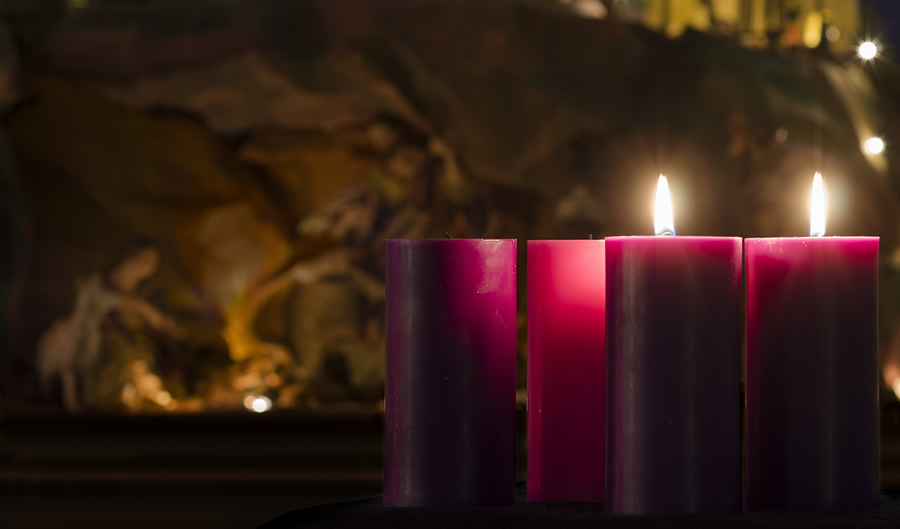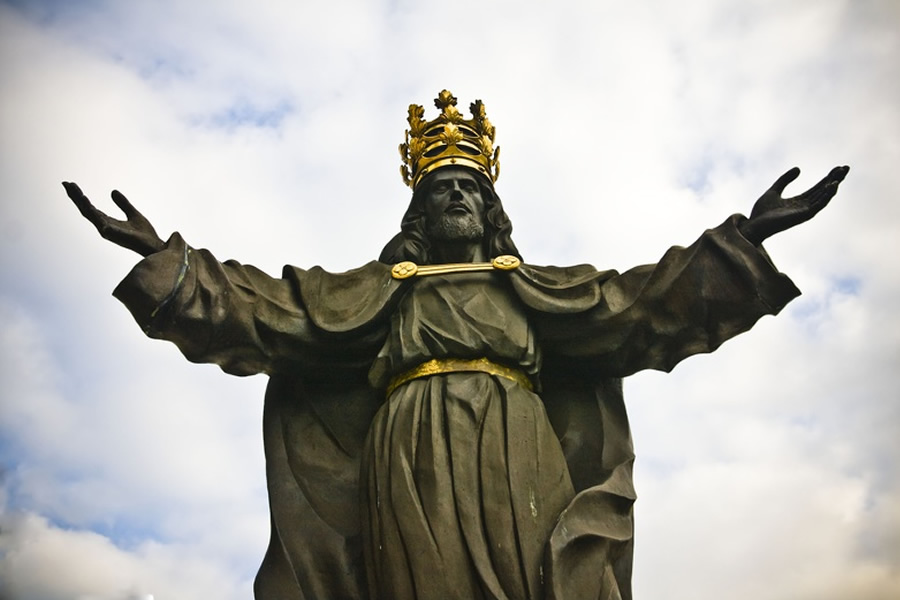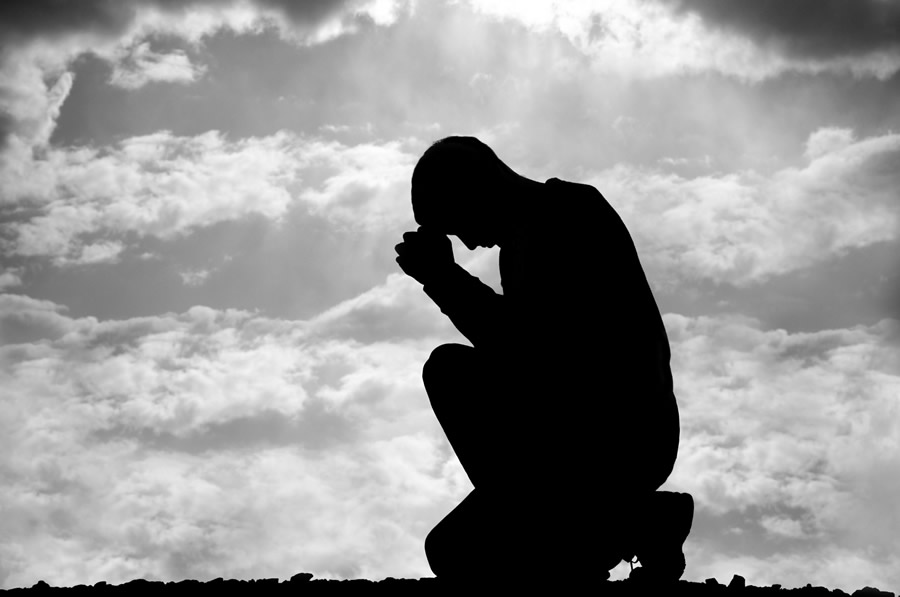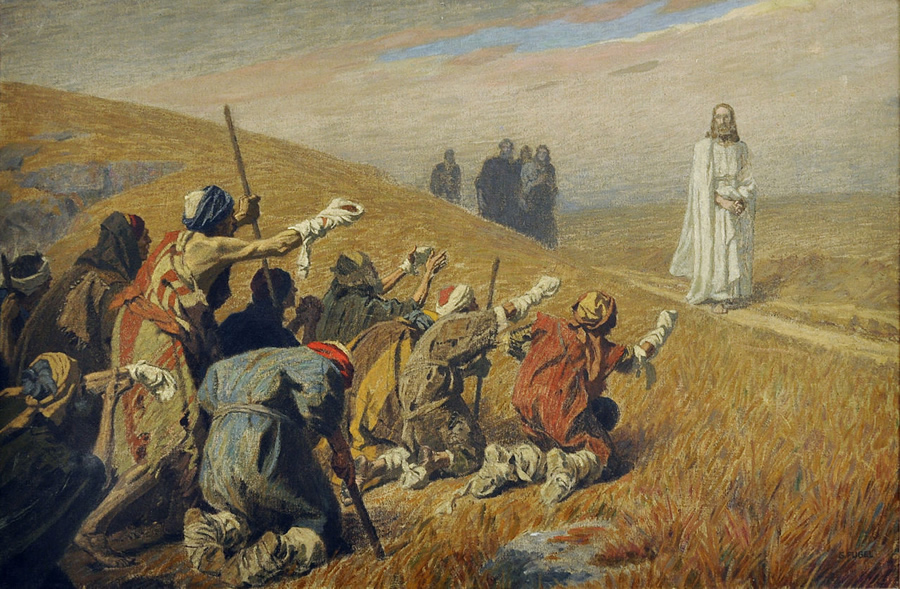Blog & Pastor Letters

How Much Is Enough?
by Tracy Earl Welliver, MTS | 12/07/2025 | Weekly ReflectionI’ve got some great news for some of you: Jesus Christ doesn’t care what name you bear. He doesn’t care where you were born, and he doesn’t care what your family tree looks like. He doesn’t care where you grew up or where you went to school.
I’ve also got some bad news for some of you: See above.
Continue
First Sunday of Advent - Have No Fear!
by Tracy Earl Welliver, MTS | 11/30/2025 | Weekly Reflection“So too, you also must be prepared, for at an hour you do not expect, the Son of Man will come.”
This week we hear that ominous Gospel passage where Jesus tells us about people being taken from where they are and what they are doing when they least expect it, while others remain. This has been distorted by some for support into a spectacular idea of rapture, leading to many books and movies. A profitable genre has been created that sometimes preys on people’s fears.
Continue
How Would You Rule Your Kingdom?
by Tracy Earl Welliver, MTS | 11/23/2025 | Weekly ReflectionIt would be kind of awesome to be a king or queen! Absolute rule, untold wealth, and people answering your every beck and call are things that wouldn’t be half bad. Of course, I would be a benevolent monarch, and I would hope that all my subjects would love me. They could cheer me as I came out of the palace, and I think my popularity ratings in the polls would be through the roof. But if they weren’t, that would be fine, too, because I would rule the kingdom. And that means no throwing me out of office. Talk about job security!

We Are Called to Be Saints
by Tracy Earl Welliver, MTS | 11/16/2025 | Weekly ReflectionCatholics often are drawn to saints due to their profession, hobbies, or ethnic background. One’s patron saint serves as an example of how to live a life of holiness and service to God. We hold up the saints of the Church in high regard. However, we can sometimes make the mistake of seeing them as the subject of stories in print and not real living people. We can assume that their level of devotion and holiness is unattainable. In fact, we are all called to be saints.
Continue
The Dedication of the Lateran Basilica
by Fr. John Muir | 11/09/2025 | Weekly ReflectionWhen I was 22, I entered St. Peter’s Basilica for the first time. It floored me. I could hardly take it in, its grandeur, majestic arches, vibrant colors, and the light that danced through its high windows. Somehow, amidst such splendor, I felt an overwhelming sense of belonging, as if I had finally come home.
Jesus reorients how we Catholics see sacred buildings. In today’s Gospel he says, “Destroy this temple, and in three days I will raise it up” (John 2:13-22). His riddle implies, shockingly, that his own body is now the fundamental dwelling place of God and humanity. The temple in Jerusalem has been superseded.
Continue
The Commemoration of All the Faithful Departed - John 6:37-40
by Fr. John Muir | 11/02/2025 | Weekly ReflectionI lost my wallet this year. It was such an annoyance to replace everything in it. A friend, moved by sympathy, gave me a beautiful new one. One month later I lost that one, too, with all my newly replaced cards. No matter what I did, I couldn’t find what I had lost. I resigned myself to never seeing either of my wallets again.
Continue
More Than a Buzzword
by Tracy Earl Welliver, MTS | 10/26/2025 | Weekly ReflectionIf you roll your eyes at the mention of the term stewardship, it’s probably because, in the modern Church, stewardship has become something of a corporate buzzword. It’s often used interchangeably with the concepts of financial endowment and volunteerism.
What’s wrong with supporting your parish monetarily? What’s the issue with giving of your time in service and ministry? Nothing at all, in fact — we should all be doing more of these things.
Continue
Sparking Holiness
by Tracy Earl Welliver, MTS | 10/19/2025 | Weekly ReflectionAs the seasons change, a lot of us like to clean out our homes and unload some of the junk we’ve acquired over the summer. One trendy approach to decluttering is the Marie Kondo method, named after the author who popularized it. Overly simplified, it’s a process that compels you to go through your closets, your garage, your basement — all the places you collect the dreaded “stuff.” As you do so, you hold up the items and ask yourself: “Does it spark joy?”
Continue
To Give of Oneself
by Tracy Earl Welliver, MTS | 10/12/2025 | Weekly ReflectionIn the South, the use of “Yes, Sir,” “Yes, Ma’am,” and “Thank you,” have been drilled into many a little person’s brain. Unfortunately, as time goes by, those social conventions seem to be in danger, even in the very places that have held them sacred for so long. In fact, I have found that I sometimes will even get a strange look when I utter similar words to a stranger or passer-by. It seems manners are being traded for acceptance of ill-conceived tolerance, even tolerance of the ill-mannered.
Continue
How Much Is Enough?
by Tracy Earl Welliver, MTS | 10/05/2025 | Weekly ReflectionDuring a conversation about good stewardship of money and time, my daughter shared that sometimes doing the best thing was so hard for her to do. It wasn’t always a matter of right and wrong, black and white, but a matter of better and best. I began to reflect on the truth of her statement. When confronted with a decision, we can sometimes be given a choice of good, better, and best. We fool ourselves into believing that the good choice is not a bad one, so it must be enough. However, we have essentially placed a limit on our generosity or commitment with our false sense of good stewardship.
Continue